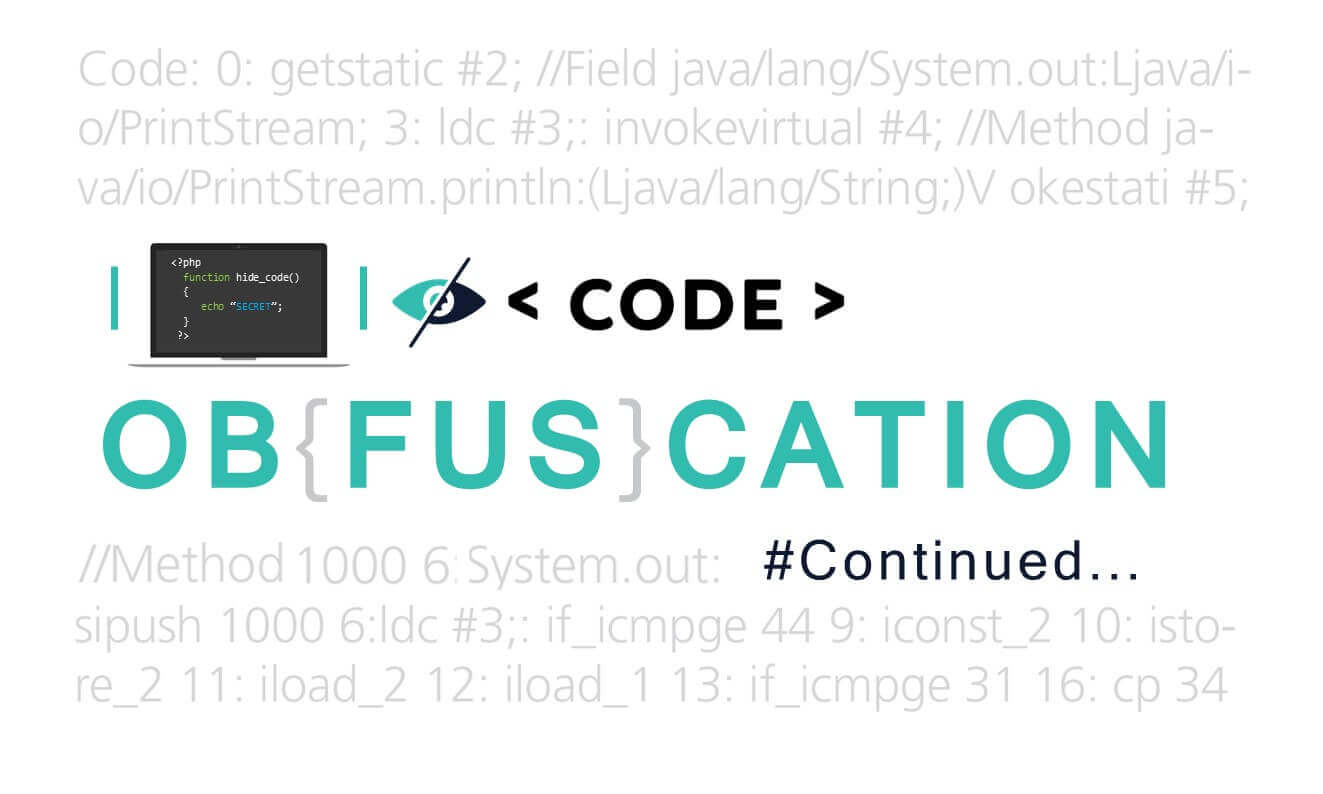
Certain programming languages like .NET and Java can very easily be decompiled to readable sources. There are a lot of definitions about the code obfuscation. Still, to explain it better the code obfuscation is the process that makes your application binaries slightly harder to read with a decompiler. It is a very important tool to protect the intellectual property of your business.
Why Obfuscate Code?
Some compiled languages get converted directly to bytecode, for example, C++. If you want to reverse engineer, the only way to work is with a disassembler, a complicated and arduous process. Though it is impossible, inferring high-level app logic from a stream of assembly language is quite difficult.
On the other side, languages like Java and C# are not compiled for any particular OS. They are more compliant to an intermediary language, such as MSIL. NET’s. This intermediary language is very similar to assembly, but it’s easily converted back into the source code. So this does mean that in case you have an executable or public Dynamic-link library (DLL), anyone who possesses a copy of your executable can open it up in, let’s say, dotPeek (.NET decompiler) and directly read your source code, and copy it as well.
Any .NET DLL can be plugged into a decompiler, so code obfuscation cannot prevent this process. But what obfuscation does is use a number of things to make the source code very annoying to read and debug.
Renaming is the simplest form of this entity. It is a very common practice to properly name all of the methods, variables, parameters, and classes according to their function. But of course, you don’t have to do that, so nothing stops you from naming them with lowercase L’s and I, or similar random combinations of Unicode characters, just to make the code very hard to read and debug. It is all the same for the computer, but to a human is very difficult to distinguish.
It could look something like this:
IlIIIIlIIIllIIIllIIll
lIIIllIIllIlIIIIlIIIl
(neat, right?)
This process will be handled automatically by a basic obfuscator, taking the output from the build and then converting it to something hard to read. By doing this, there is no performance decrease to non-obfuscated code.
There are types of advanced obfuscators that can make it possible to change the source code structure. This means it can replace control structures with identical syntax, but it looks more complicated.
It can also embed a code that doesn’t do anything, but it would make it harder to read for the decompiler. This means the source would look like ‘spaghetti code’ – which means it would annoy anyone who tries to read the code.
Hiding strings – is one of the common things. In this way, string obfuscation can replace strings with encoded messages – which are also decrypted, and it makes it difficult to search for them from a decompiler.
There are many options for obfuscators; it depends on the language the obfuscators are using—for example, Obfuscar, ProGuard, Javascript-obfuscator. etc.
Another option: You can convert to a Compiled Language
You can convert one programming language to another one; isn’t that a hard or crazy idea. It is an effective way to secure games from cracking, and it is an important step to do when protecting from piracy and cheaters. For example, Unity uses an IL2CPP converter to transform .NET code into C++ bytecode.
Is it necessary to Obfuscate?
Untrusted environments exist – so if you are using a code and want to secure it, it is important to use an obfuscator to decompose hard.
Securing your code is a must. Using an obfuscator is a must. If you don’t want anybody to decompile your app, you should try switching to a language that doesn’t have these problems.
View more :

Taylor is a freelance SEO copywriter and blogger. His areas of expertise include technology, pop culture, and marketing.











